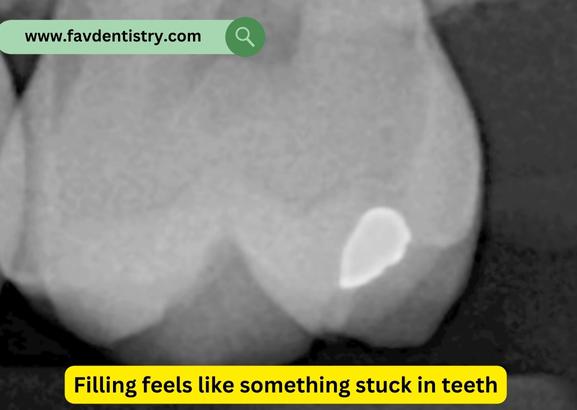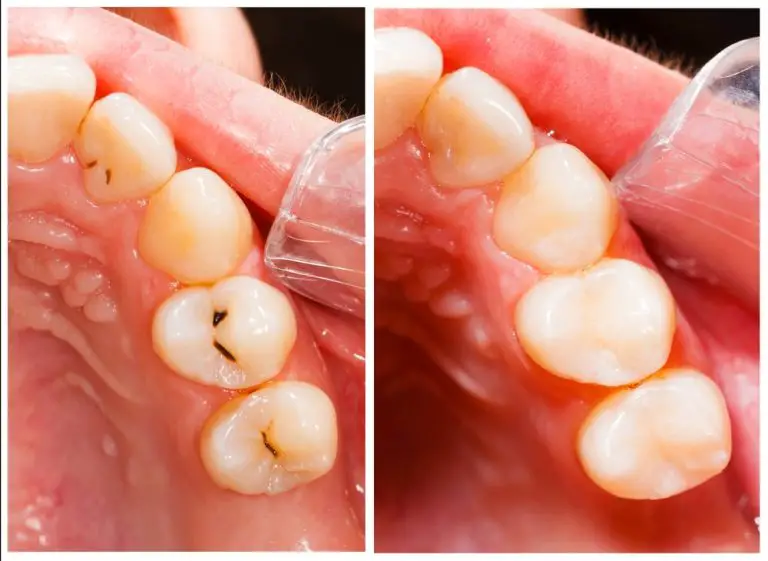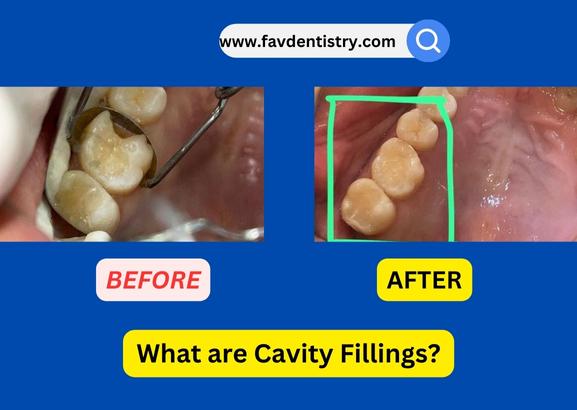Last Updated on 2 weeks by DR. ALBIN SIPES
Your dental filling fell out because it may have been worn down or damaged. Additionally, it could have come loose due to tooth decay or biting on hard objects.
It’s important to see your dentist for a replacement to prevent further complications or tooth decay.
Why Did My Filling Fall Out? Understanding The Basics
When a filling falls out, it can be frustrating and concerning. Understanding the reasons behind this occurrence is essential. Factors such as poor oral hygiene, tooth decay, tooth grinding, and improper placement can affect the durability of fillings. Maintaining good oral hygiene practices, including regular brushing and flossing, can help prevent fillings from falling out.
Tooth decay weakens the tooth structure, making it more susceptible to filling failure. Additionally, individuals who grind their teeth may experience fillings dislodging due to excessive pressure on the filling material. Lastly, if a filling is not properly placed, it may not adhere to the tooth properly, leading to its eventual displacement.
To ensure lasting fillings, it is crucial to visit a professional dentist who can perform the procedure correctly and recommend appropriate oral care practices.
The Hidden Culprits: Common Causes Of Filling Failure
Filling failure can be caused by decay and tooth damage, which weaken the tooth structure. An uneven bite and grinding habits put excess pressure on the filling, leading to dislodgement. Poor oral hygiene practices, like neglecting regular brushing and flossing, contribute to filling failure.
To prevent fillings from falling out, it is important to address decay and tooth damage promptly. Correcting an uneven bite or grinding habits can reduce the strain on the filling. Maintaining good oral hygiene by brushing and flossing regularly helps to keep the filling intact.
Understanding these common causes and taking necessary precautions can help prevent filling failure and ensure a healthier smile.
Unraveling The Mystery: How Filling Materials Influence Durability
Filling falls out? Discover the reason behind it. Different materials affect durability. Metal or tooth-colored fillings? Explore pros and cons. Metal fillings: strong and long-lasting. Tooth-colored fillings: natural appearance but less durable. Make an informed decision.
The Shocking Truth Exposed: Unexpected Factors That May Contribute To Filling Loss
The integrity of dental fillings can sometimes be compromised, leading to their unexpected loss. Temperature changes play a role, affecting the expansion and contraction of the filling material. Dietary habits also have an impact on filling longevity, as certain foods can exert pressure on the filling, potentially causing it to become dislodged.
Moreover, lifestyle choices, such as teeth grinding or nail-biting, can contribute to filling loss by putting excessive stress on the restoration. Our oral health is influenced by various factors, and understanding these unexpected contributors to filling loss can help us maintain a healthy smile.
By being mindful of temperature changes, maintaining a balanced diet, and avoiding habits that strain dental restorations, we can increase the longevity of our fillings and enjoy optimal oral health.
Frequently Asked Questions Of Why Did My Filling Fall Out
Faq 1: Why Did My Filling Fall Out?
Filling can fall out due to various reasons such as tooth decay, teeth grinding, improper dental work, or biting into hard foods. It’s important to reach out to your dentist to evaluate the cause and correct the issue promptly.
Faq 2: Can A Filling Fall Out On Its Own?
Although fillings can loosen over time, they usually don’t fall out on their own. External factors like biting into hard objects or dental trauma may cause a filling to dislodge. Regular dental check-ups can help detect any loose fillings before they fall out completely.
Faq 3: What Should I Do If My Filling Falls Out?
If your filling falls out, carefully remove any debris, clean the area, and inspect the filling. Contact your dentist immediately to schedule an appointment. In the meanwhile, avoid chewing on that side of the mouth, practice good oral hygiene, and use temporary dental fillers to protect the exposed area.
Conclusion
Taking proper care of our dental fillings is crucial to prevent them from falling out. Regular dental check-ups, maintaining good oral hygiene, and avoiding biting or chewing on hard objects can help extend the life of our fillings. However, if a filling does fall out, it is important to seek dental assistance promptly.
Dentists can determine the cause of the issue and provide the necessary treatment to prevent further damage. Common reasons for fillings falling out include tooth decay, grinding or clenching teeth, and age-related wear and tear. By addressing these underlying issues, we can ensure the long-term success of our dental fillings.
Remember, prevention is better than cure. So, make sure to follow good oral hygiene practices, eat a balanced diet, and maintain regular dental appointments to keep your fillings intact. Replacing a filling is a routine procedure and can help maintain the structural integrity and health of your teeth.
Keep your smile healthy and bright by giving your dental fillings the attention they deserve.





